Do you ever teach a subject or unit for a long time and get dismayed when it seems forgotten a few months later? This can happen when you have a long break from homeschooling or move on to other topics but it’s disheartening especially in Islamic Studies when all of the information is beneficial and you don’t want any of it to be forgotten. Islamic Studies games can really help you achieve the revision and review that are really key to preventing this from happening. You want to consolidate what they have learnt and revisit it regularly. There are a few ways of doing this, one of which is Spiral Review which I explored in detail in a previous blog post.
However, the method that is often very popular with kids, is using games. The best thing about games is how effortless it makes revision. These games suggestions are not just Islamic Studies games, they can be used for other subjects. Kids will actually beg you to play, outside of lesson time and honestly, it’s a lot of fun for you too!
If you would like a free PDF of 3 examples of these games, click here to download it!
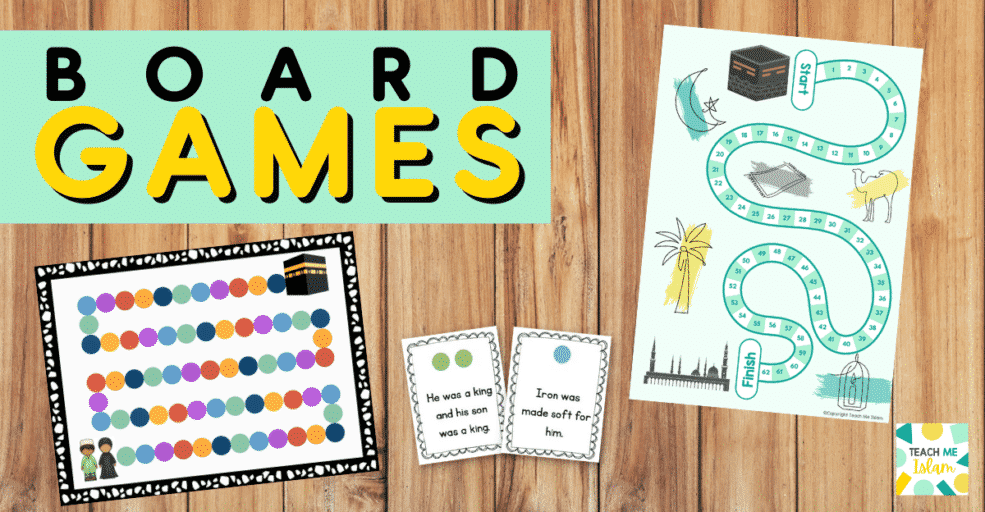
Islamic Studies Game 1:Board Game
These are classic for a reason and they are easy to adapt to make into Islamic Studies games. They are fun and kids can visualise their progress. This is especially important when kids of different ages are playing. Younger kids will accept the winner if they can see them actually reach a destination, unlike points-based games where the result can appear random. You can vary the board to create interest, desert, jungle, arctic and space themed landscapes are just some of the backgrounds to explore. You can also have different card stacks for different kids to focus on. This way you are just revising what each child requires. For example, one child can have Arabic letter flashcards, while the other might have seerah question cards.
Example Rules:
Each player goes forward one space for each correct answer. The first to reach the end wins.
You can add wildcards to make it more interesting. For example, go forward two spaces or back one space. Bonus points for linking them to the game board theme, e.g. you slip on the ice, go back 3 spaces, or you hitch a ride with some huskies, go forward two spaces.
If you don’t want to make your own, there are board games included in several of the resources available in the Teach Me Islam shops. The Prophets of the Arabian Peninsula Board Game is included in lesson 3 of the Arabian Peninsula unit, the Africa and Islam Unit study includes a game about the first Hijirah and the Abu Bakr Unit Study has a review game about the Noble Companion’s life.
A Prophets of Islam Board Game with questions covering 20 Prophets mentioned in the Qur’an is available on Teachers Pay Teachers and Etsy.
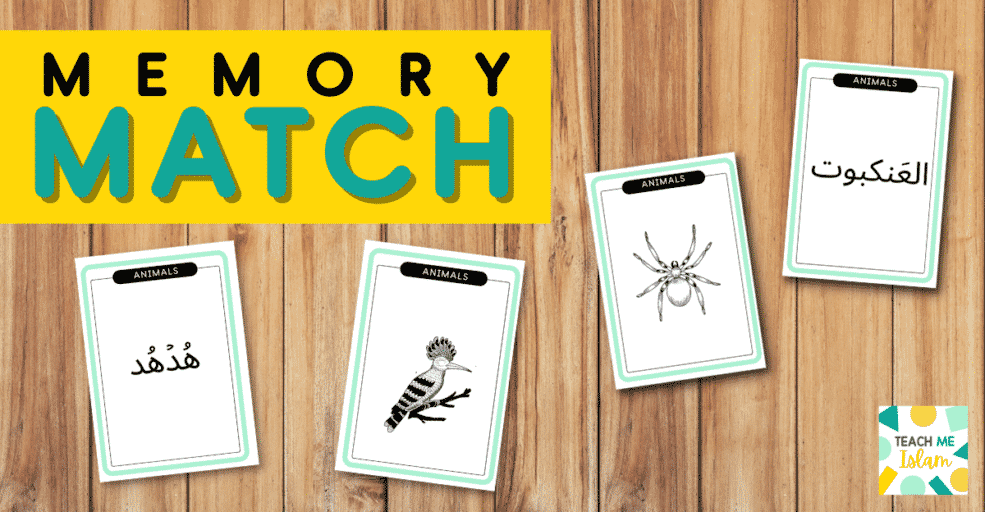
Islamic Studies Game 2: Memory Match
This Islamic Studies game is simple and involves matching two pieces of information.
Here are some examples of formats you could use:
Picture – Arabic word
Arabic word – English translation
Islamic term – definition
Person – descriptor/title
- Shuffle your cards and lay them face down in a grid.
- Each player takes turns turning over two cards.
- If they are a match the player keeps them.
- If a match is made, the player takes another turn.
- The game ends when there are no more cards left.
- The winner is the player with the most cards.
I’ve included an Animals of the Qur’an Memory Match game in the free PDF. Each player matches the Arabic name of the animal with the animal picture.
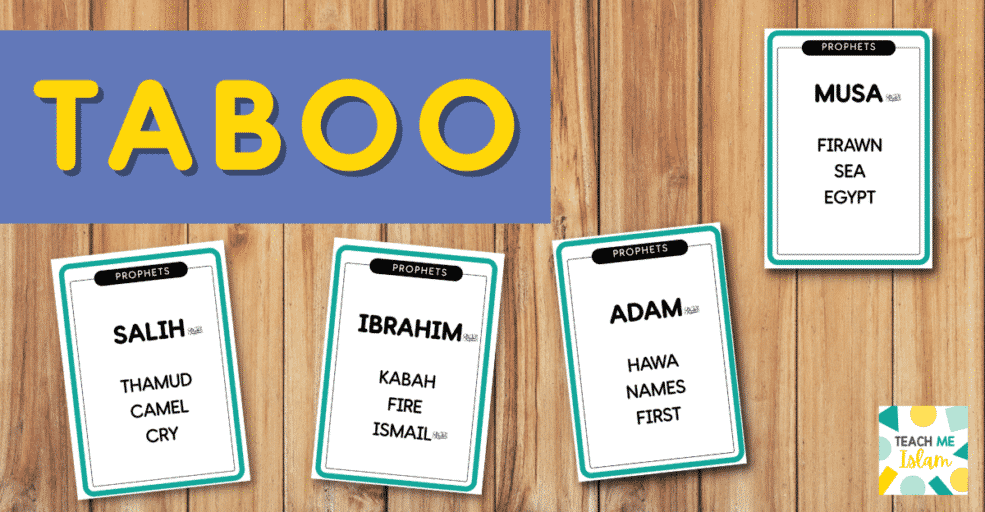
Islamic Studies Game 3: Taboo!
This game is such a lot of fun and really helps kids dig deeper into what they have learnt. Each card has a topic/word and they need to describe it to other players on their team but without using the other words on the card. The version included in the free PDF is about the Prophets. Kids might be able to describe Salih (alayhi salaam) but can they describe him without the words camel or Thamud! It is also very easy to differentiate for kids of varying ages, you just have harder cards with several forbidden words on them and easy cards with just one.
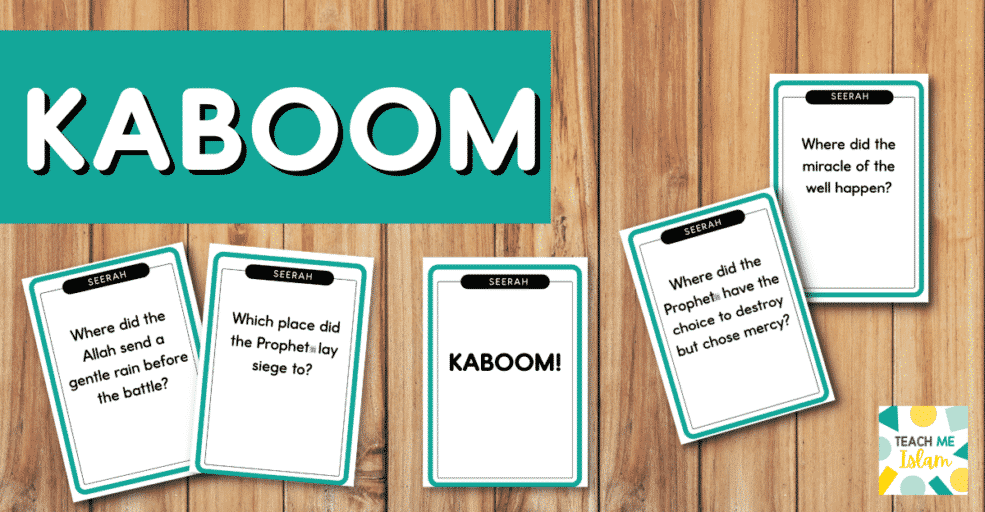
Islamic Studies Game 4: Kaboom!
This Islamic studies game is simple, fun and effective! There are a series of question cards and some cards that simply say Kaboom.
A timer is set (around 7 mins but it depends on the number of cards and players)
Each player takes a card from the stack and answers the question on it.
If the player answers correctly they can keep the card.
If they draw a Kaboom card, then they have to return all their cards to the bottom of the stack.
The winner is the player with the most cards when the timer beeps.
The beauty of this game is you can write questions quickly on some paper and you have a set of question cards. You can add whatever topics you have been studying and then add them to the card stack. By the end of the year you’ll have questions about all the topics covered inshaAllah. If you play it regularly, then revision becomes effortless.
Some teachers write questions on lollipop sticks as a fun twist. It also has the added bonus of being more durable.
Download a free example here!
Islamic Studies Game 5:Heads Up!
This is a guessing game similar to taboo, except without the forbidden words. This is not as easy to be differentiated so it works best with a subject that everyone can join in with.
2 players minimum
- A timer is set for 2-3 minutes.
- A player draws a card from a stack and places it on their forehead (WITHOUT LOOKING AT IT) so it can be read by the other player/s on their team but not by them.
- The other player/s describe the word
- The one holding the card guesses what it says.
- A correct guess is one point.
- At the end of the round, the points are added.
- The other team then takes their turn.
- The team with the most points wins.
- If playing with only two players, take turns and try to improve your score.
Bonus Game: Online Quiz
This is a bonus category as it requires technology and an internet connection. There are lots of popular online quizzes now, the most popular in education is probably Kahoot. You can add your own questions and then host the quiz whenever you want to play. It is totally free if you are using the basic version (which generally offers enough functions). The only drawback is that each player needs a device. It is very fun, removes any arguments about who answered first(!) and once you have entered your quiz questions, it can be used again and again. It’s possible to use other users’ question sets but you can’t verify the authenticity of the questions and answers so it is best to avoid that.

Islamic Studies Games are great to revise and review!
These 5 Islamic Studies games are easily adaptable for almost any topic that you are studying from seerah to tafsir. If you stick to one type of game, you can build up a card stack that can be used to revise. Plus that stack can be used for multiple games, for example, the same set of cards can be used for kaboom and a board game, you just need to remove/add the kaboom cards.
It’s a great way to revise in a natural way all year round. Plus once you model how to play, it can be a fun activity for kids to do themselves if you are teaching multiple kids.
You can get your free games pdf here which includes:
⭐Animals in the Qur’an Memory Match
⭐Places in the Seerah Kaboom
⭐Prophets of Islam Taboo game
Join the mailing list here to download a biography pack about one of the Noble Companions promised paradise, Abu Ubaidah bin Jarrah (may Allah be pleased with him) and gain access to the free resource library
Here are some other blog posts you may be interested in:
How to teach Islamic content all day long

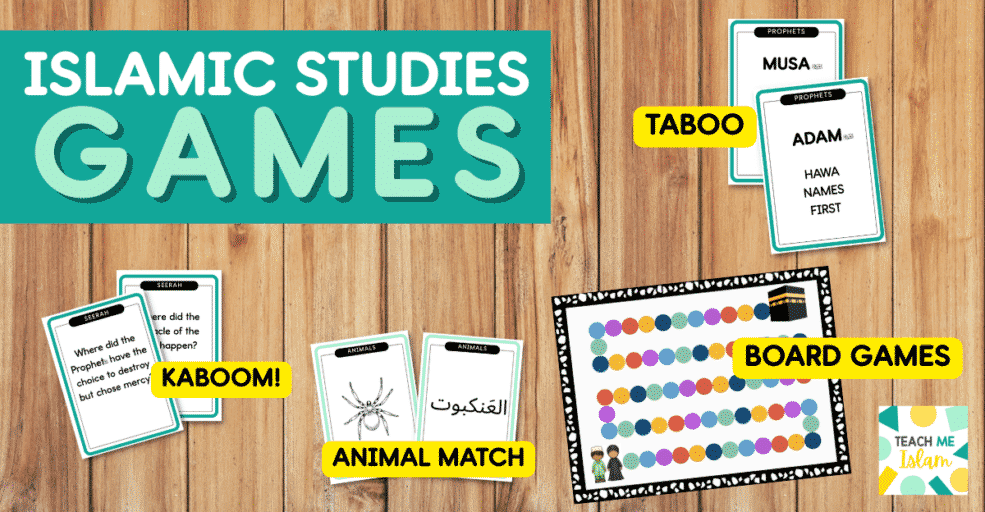



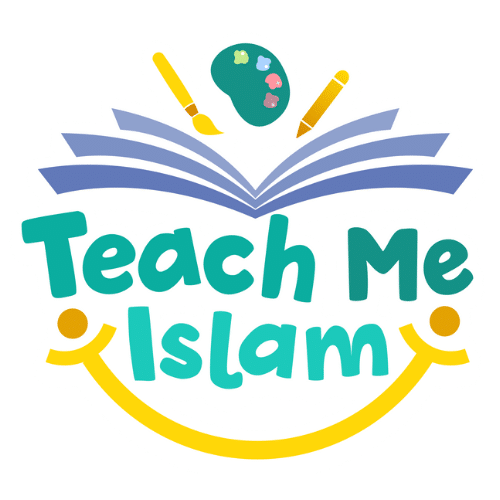

2 Comments
I love it
Jazakallah khair
This article has helped me a lottt
May Allah reward you 😇😇😇
Keep up the great work!